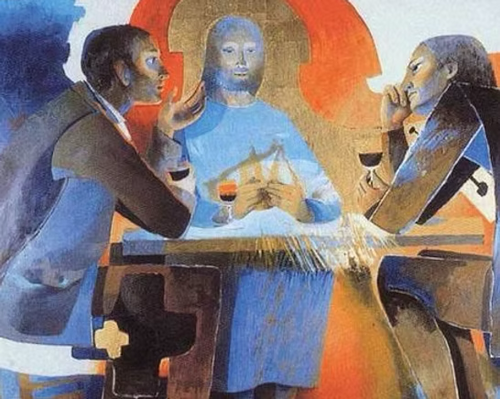Key Beliefs
The Trinity: The mystery of the Holy Trinity, namely, that the one God exists eternally in three persons: Father, Son and Holy Spirit; and has so revealed Himself to us in the Gospel.
The Lord Jesus Christ: The full deity and full humanity of our Lord Jesus Christ, God Incarnate, the Word of the Father, who by reason of His birth of the Virgin Mary, sinless life, atoning death, bodily resurrection, glorious ascension, and triumphant reign, is the only Mediator between God and humanity.
The Holy Scriptures: The trustworthiness of the canonical books of the Old and New Testaments as “God’s Word written,” which contain all things necessary for salvation, teach God’s will for His world, and have supreme authority for faith, life and the continuous renewal and reform of the Church.
Justification & Sanctification: The justification of the repenting and believing sinner as God’s gracious act of declaring them righteous on the ground of the reconciling death of Christ, who suffered in our place and rose again for us: and sanctification as the gracious continuing activity of the Holy Spirit in the believer, bringing them to complete repentance, nurturing the new life implanted within them, transforming them into Christ’s image, and enabling them to do good works in the world.
The Christian Church: The Church as the Body of Christ, whose members belong to the new humanity, and are called to live in the world in the power of the Spirit, worshiping God, confessing His truth, proclaiming Christ, supporting one another in Love, and giving themselves in sacrificial service to those in need.
Spiritual Gifts and Ministry: The calling of all Christians to exercise their God-given gifts in ministry, and to work, witness and suffer for Christ; together with the particular calling of ordained ministers who, by preaching, teaching and pastoral care, are to equip God’s people for His Service, and to present them mature in Christ.
The Sacraments: The sacraments of Baptism and Holy Communion as “visible words” which proclaim the Gospel, and as means of grace by which faith is strengthened. In particular, the significance of the Lord’s Supper as a communion in the Body and Blood of Christ, who offers Himself to us, so that by faith we may feed on Him in our hearts and offer ourselves to Him in gratitude for our salvation. Also, the openness of the Lord’s Table as the place where all baptized believers, being one in Christ, are free to celebrate their common salvation in the Lord, and to express their common devotion to His person and His service.
The Return of Christ: The personal return in glory of our Lord Jesus Christ at the end of this age for the resurrection of the dead, the glorification of His church, and the renewal of the whole creation.






